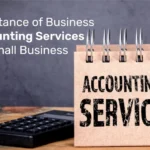money hoarder nyt is a necessary part of our lives, but what happens when it turns into an obsession? If you find yourself hoarding cash or becoming overly attached to your bank balance, you might be slipping into the realm of a money hoarder. This behavior can lead to anxiety and missed opportunities. It’s time to take a closer look at how we handle our finances and ensure that money serves us—rather than controls us. Understanding the signs of money hoarding and taking steps to foster a healthier relationship with your finances can pave the way for greater peace of mind. Let’s dive in and explore this important topic together!
Understanding Money Hoarding
Money hoarding is more than just saving. It’s a compulsive behavior that leads to an irrational attachment to cash and material wealth. This tendency can stem from various emotional triggers, including fear of scarcity or past financial trauma.
Many people view money as security or power, leading them to accumulate it obsessively. They may avoid spending even when necessary, holding tight to their savings like a safety blanket.
Understanding the psychology behind this phenomenon is crucial for breaking free from its grip. The desire for control often drives these behaviors, creating a cycle of anxiety and stress regarding finances.
A true understanding involves recognizing how our emotions influence our financial habits. By addressing these feelings head-on, we can start to shift our perspective on money and its role in our lives.
Signs That You May Be a Money Hoarder
Identifying as a money hoarder can be subtle. Start by reflecting on your spending habits. Do you feel anxious about parting with cash, even for necessities? If each expense feels like a loss, that’s a warning sign.
Another indicator is the accumulation of unused items. When was the last time you decluttered? Holding onto things “just in case” may suggest deeper financial fears.
Consider how often you check your bank balance. If the number brings more anxiety than peace, it might point to an unhealthy relationship with money.
Do you prioritize saving over enjoying life experiences? Skipping out on social events to save a few dollars could signal an imbalance.
Assess your willingness to share resources or help others financially. A reluctance to lend support often stems from fear of losing what you’ve saved up. Recognizing these signs can prompt meaningful change.
The Impact of Money Hoarding on Your Mental Health
Money hoarding can create a web of anxiety. The constant worry about finances may lead to sleepless nights, as thoughts swirl around bills and savings.
This behavior often breeds feelings of shame or guilt. Many hoarders feel trapped by their own choices, unable to enjoy the present moment due to overwhelming stress about the future.
Isolation is another consequence. People who struggle with money hoarding might avoid social situations out of fear of judgment or financial inadequacy. This disconnection can deepen feelings of loneliness.
Moreover, physical clutter linked to money hazards—such as unopened bills—can manifest in emotional turmoil. A chaotic environment contributes directly to mental strain, making it hard for individuals to think clearly or make sound decisions.
Managing this condition is crucial for achieving peace and clarity in life. It’s not just about money; it’s also about your state of mind and overall well-being.
Tips for Overcoming Money Hoarding Habits
Start by tracking your spending. Use apps or spreadsheets to gain insight into where your money goes. Awareness is the first step in breaking free from hoarding tendencies.
Set clear financial goals. Whether it’s saving for a vacation or paying off debt, having specific targets helps you focus on what truly matters instead of accumulating unnecessary cash.
Practice mindfulness when making purchases. Ask yourself if an item will truly enhance your life or if it’s just a fleeting desire. This simple habit can curb impulsive buying.
Consider decluttering both physical and mental spaces related to money. Let go of old bills and receipts that no longer serve you, creating room for healthier habits.
Celebrate small wins along the way! Acknowledge each positive change you make; this reinforces good behavior and keeps motivation high as you work towards overcoming hoarding habits.
Creating a Healthy Relationship with Money
Creating a healthy relationship with money starts with self-awareness. Acknowledge your feelings about finances—are they rooted in fear, anxiety, or perhaps guilt? Understanding these emotions can provide insight into your spending and saving habits.
Next, establish clear financial goals. Whether it’s saving for a vacation or paying off debt, having tangible objectives gives purpose to your financial decisions. It transforms money from a source of stress into a tool for achieving dreams.
Budgeting plays an essential role too. Track your income and expenses diligently. This practice fosters accountability and helps you understand where every dollar goes.
Celebrate small victories along the way. Each step towards improved financial health is significant and deserves recognition. Embracing gratitude for what you have can shift your perspective, making money just one part of a more fulfilling life experience.
Seeking Professional Help
If you find it challenging to break free from money hoarding behaviors, seeking professional help can be a powerful step. Financial therapists or counselors specialize in addressing the emotional aspects of money management.
These professionals provide tailored guidance that helps uncover the root causes of your habits. They create a safe space for you to explore your feelings about money without judgment.
Support groups can also offer valuable insights and camaraderie. Sharing experiences with others facing similar struggles fosters understanding and accountability.
Don’t hesitate to reach out for assistance. Taking this step demonstrates strength and commitment to improving your financial well-being. The right support can pave the way for healthier relationships with both money and self-worth.
Conclusion
Understanding Money Hoarding
Money hoarding is more than just saving. It often involves a compulsive need to accumulate wealth without a clear purpose or strategy. Many people might think this behavior stems from financial insecurity, but it can also be linked to deeper emotional issues. Addressing these underlying problems is key to breaking free from the cycle of hoarding.
Signs That You May Be a Money Hoarder
Are you constantly anxious about your finances? Do you struggle with spending even when necessary? These could be signs that you’re falling into the trap of money hoarding. Other indicators include excessive savings habits, difficulty parting with unused items or investments, and feeling overwhelmed by financial decisions. Recognizing these behaviors is the first step toward change.
The Impact of Money Hoarding on Your Mental Health
Being a money hoarder can take a toll on your mental well-being. The constant stress associated with managing large sums and worrying about future security can lead to anxiety and depression. Relationships may suffer too as loved ones become frustrated with your attachment to money rather than experiences or connections.
Tips for Overcoming Money Hoarding Habits
Start small if you want to make changes in your spending habits. Set limits on how much cash you’ll keep aside each month while allowing yourself some freedom for splurges—without guilt! Create budgets that prioritize necessities over wants, ensuring you’re not depriving yourself entirely but also curbing excesses that lead back down the path of hoarding.
Creating a Healthy Relationship with Money
A balanced approach is crucial in establishing control over your finances while enjoying life’s little luxuries along the way! Reflect on what truly matters: experiences, relationships, personal growth—these aspects often provide greater joy than any bank balance ever could! Consider journaling about emotions related to money; this practice helps foster mindfulness regarding purchases versus needs versus desires.
Seeking Professional Help
If self-help strategies aren’t enough or seem daunting alone, don’t hesitate to reach out for professional support! Therapists specializing in financial issues can work wonders










